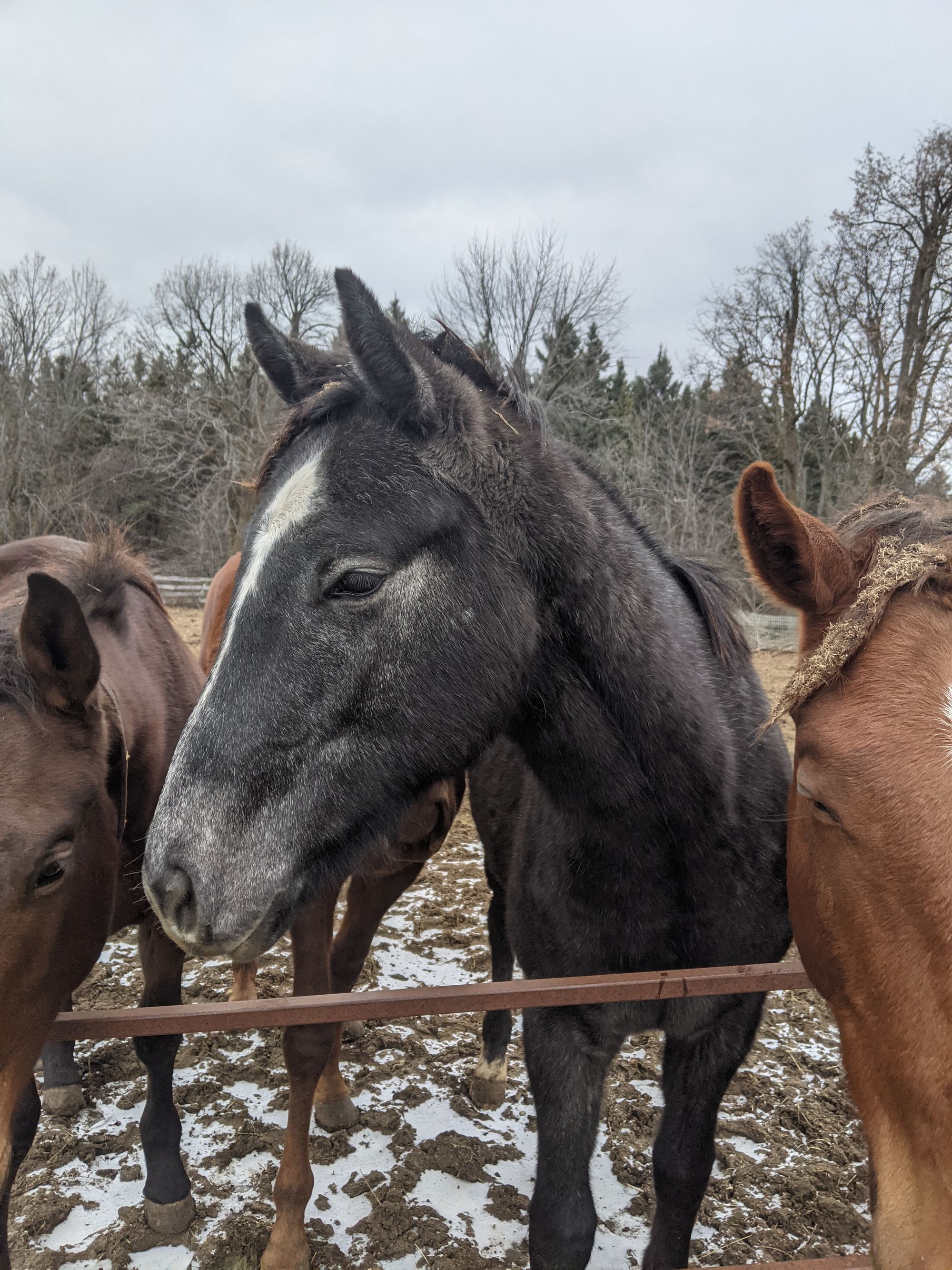The bookmark: equine edition
All things horsey on Twitter

There's not a ton of equine-related material on Twitter (horse people definitely seem to favour Instagram & Facebook for their posts), but here's a sample of what I did find that seemed to me noteworthy enough to save.
The indispensible equus asinusSelf-medicating wild horsesHorse-human connectionRevising the history of the horse in the AmericasWhen hay was kingThe indispensible equus asinus
There are an estimated ten million donkeys in sub Saharan Africa.
— BBC World Service (@bbcworldservice) October 11, 2021
We explore how they're an economic lifeline for many families and why demand from China for their skins is worrying many across the continenthttps://t.co/tjeTdc6FM4
Donkeys are fascinating creatures. They differ significantly from horses: hardier, thriftier, perhaps cleverer and definitely more challenging to work with for all these reasons. They are also a vital element of the transportation infrastructure in many places all over the world. And they are often subject to some very rough treatment: not just beatings, but ill-fitting homemade tack that causes terrible injuries and shoeing practices that are anything but friendly to their feet.
Self-medicating wild horses
Do #Alberta's feral horses self-medicate? @UCalgary researcher Dr. Brielle Rosa is studying whether these beautiful animals eat plants that help fight off parasites. Study blends Métis traditional plant medicine knowledge and clinical research. #horses https://t.co/6dSGLgxzIv pic.twitter.com/SiIyrJ2GvT
— UCVM (@ucalgaryvetmed) September 29, 2021
Rosa is working with Brenda Holder, a traditional knowledge keeper of plant medicine and member of the Métis Nation of Alberta.
The year-and-a half-long research project consists of field work and data collection. Over the summer, Rosa, Holder, and the two students observed several bands of feral horses in the Sundre area, using a combination of remote cameras and direct observations to see what plants they were eating that may have anti-parasitic properties. They also took samples to determine the parasite loads of the horses; this will allow them to determine if there is a correlation between parasite burden and the plants ingested.
Horse-human connection
A fascinating probe into x-species connection and kinetic empathy. There are ethical issues here, requiring more discussion, but the symbiosis between horse and human is very, very old. https://t.co/DTlKGyI7SN
— 🧬 Ginny Battson (@seasonalight) January 15, 2022
Revising the history of the horse in the Americas
Accounts of the horse's history in the Americas from indigenous peoples have long conflicted with the scholarly consensus, which has insisted that the horse only returned to the Americas with the Spanish invasion forces. What's especially interesting about this latest piece of scholarship is that it incorporates indigenous knowledge rather than simply dismissing it.
New Science paper argues horses came to the Americas earlier than previously thought—a conclusion that, if it holds up, rewrites the history of the N. American West. Strikingly, the article is from a team of archaeologists, geneticists, and Lakota researchers and elders. 1/15 pic.twitter.com/ysxroKq2T9
— 𝙲𝚑𝚊𝚛𝚕𝚎𝚜 𝙲. 𝙼𝚊𝚗𝚗 (@CharlesCMann) March 30, 2023
When hay was king
Not directly about horses, but a fascinating study of the economic impact of their needs--in the form of hay--at time when the working horse was central to everyday life.
I've got a new article just out in the AHR: "When Hay Was King: Energy History and Economic Nationalism in the 19c US." The energy people know about this work but I hope it also reaches my Civil War era colleagues. 1/https://t.co/nU9PUCISf5
— Ariel Ron (@arielronid) April 3, 2023
